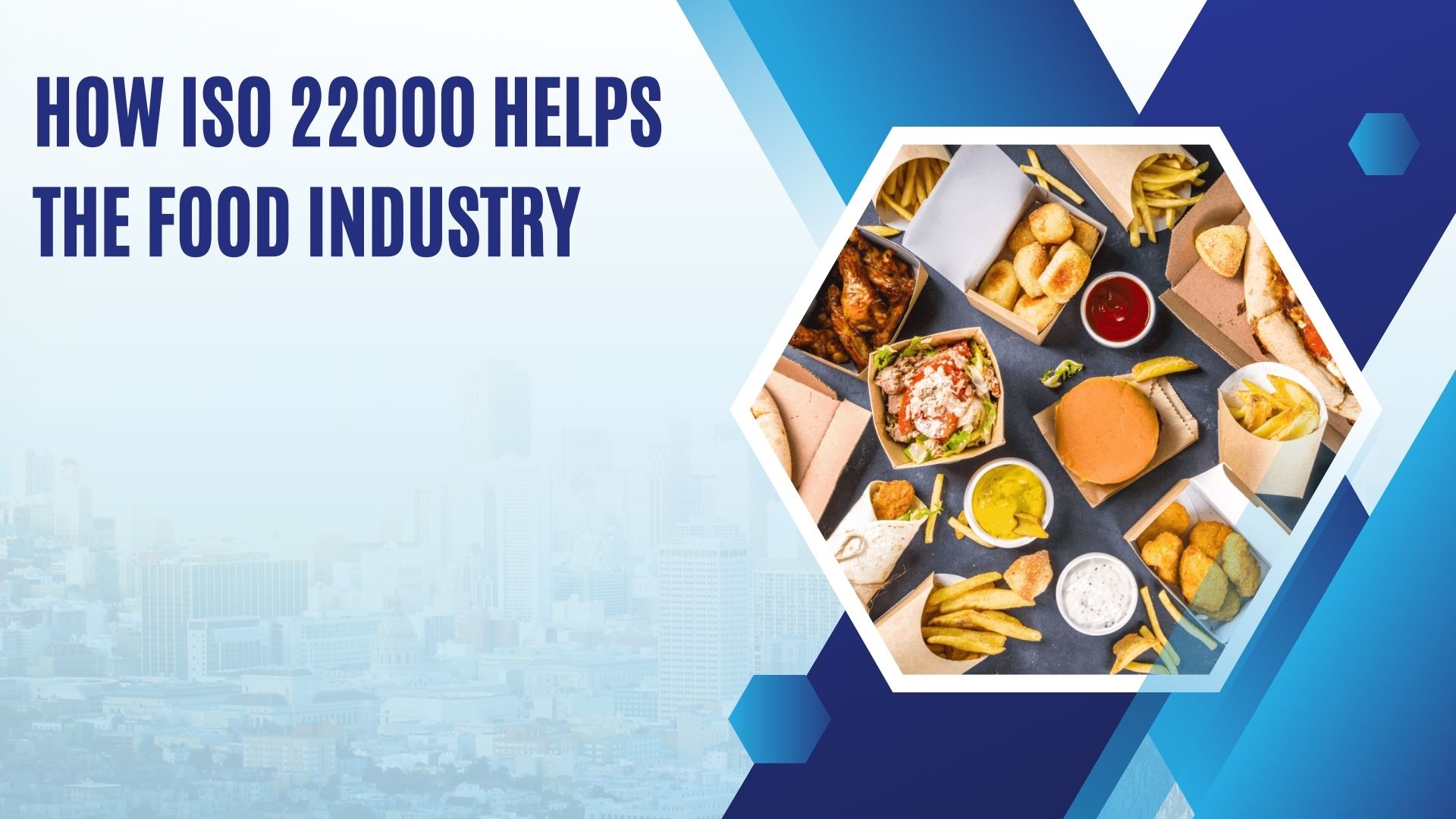In the modern world, ensuring the safety of food products is
paramount. With consumers becoming increasingly aware and demanding about the
quality and safety of what they consume, the food industry faces ever-growing
pressure to meet stringent standards. In this pursuit, ISO 22000 emerges as a
beacon of assurance, offering a comprehensive framework for food safety
management systems. This article explores the significance of ISO 22000 and how
it revolutionizes the food industry.
Understanding ISO 22000:
ISO 22000 is an international standard developed by the
International Organization for Standardization (ISO) specifically for food
safety management systems. It provides a structured approach to identifying,
preventing, and controlling food safety hazards throughout the entire food
supply chain. Adopting ISO 22000 is a sign of a company's dedication to
guaranteeing food product safety and legal compliance.
Key Components of ISO 22000:
1. Hazard Analysis and Critical Control Points (HACCP): ISO
22000 integrates the principles of HACCP, a systematic preventive approach to
food safety, into its framework. By identifying critical control points and
implementing measures to control hazards at these points, ISO 22000 helps
prevent, eliminate, or reduce food safety risks.
2. Prerequisite Programs (PRPs): PRPs are fundamental
programs and practices put in place to maintain a hygienic environment
throughout the food production process. ISO 22000 emphasizes the implementation
of PRPs such as sanitation, pest control, and personal hygiene to ensure the
overall cleanliness and safety of food facilities.
3. Traceability and Recall Procedures: Traceability is
crucial in the event of a food safety issue or product recall. ISO 22000
mandates the establishment of traceability systems, enabling food businesses to
track the movement of products throughout the supply chain and swiftly identify
and remove unsafe products from the market.
4. Management Commitment and Communication: Leadership
commitment is essential for the successful implementation of any management
system. ISO 22000 requires top management to demonstrate their commitment to
food safety, allocate resources, and actively communicate with stakeholders to
ensure everyone understands their roles and responsibilities.
Advantages of ISO 22000 for the Food Industry:
1. Enhanced Food Safety: ISO 22000 provides a systematic
approach to identifying and managing food safety hazards, thereby reducing the
risk of foodborne illnesses and contamination. By implementing robust food
safety management systems, businesses can instill trust and confidence in
consumers, leading to increased customer satisfaction and loyalty.
2. Global Recognition and Market Access: ISO 22000 is
recognized and accepted worldwide, facilitating international trade by
harmonizing food safety requirements across borders. Certification to ISO 22000
opens doors to new markets and enhances competitiveness by demonstrating
compliance with internationally recognized standards.
3. Improved Operational Efficiency: Implementing ISO 22000
streamlines processes and improves operational efficiency by standardizing
procedures, reducing waste, and optimizing resource utilization. By identifying
and addressing potential hazards proactively, businesses can prevent costly
recalls, minimize downtime, and maintain uninterrupted operations.
4. Legal Compliance: According to ISO 22000, standards
enables food enterprises to fulfill legal mandates and exhibit their commitment
to guaranteeing food safety. By adhering to internationally recognized
standards, organizations can mitigate legal risks, avoid penalties, and
safeguard their reputation in the event of regulatory scrutiny.
5. Continuous Improvement: ISO 22000 fosters a culture of
continuous improvement by encouraging organizations to monitor, measure, and
evaluate their food safety performance regularly. Through internal audits,
management reviews, and corrective actions, businesses can identify areas for
improvement and implement measures to enhance their food safety management
systems continually.
Implementing ISO 22000 in a Food Manufacturing
Company
Let's consider a hypothetical scenario where a food
manufacturing company decides to implement ISO 22000 to enhance its food safety
practices. Initially, the company conducts a comprehensive gap analysis to
assess its current processes and identify areas that require improvement to
meet ISO 22000 requirements.
Following the gap analysis, the company develops and
implements a food safety management system based on the principles of ISO
22000. This involves establishing documented procedures, training employees,
and implementing control measures to address identified hazards effectively.
As a result of
implementing ISO 22000, the company experiences several benefits:
- Reduced incidence of foodborne illnesses and
product recalls.
- Enhanced customer trust and satisfaction,
leading to increased sales and market share.
- Improved operational efficiency and cost savings
through streamlined processes.
- Better regulatory compliance and readiness for
international market expansion.
Conclusion:
ISO 22000 plays a pivotal role in revolutionizing the food
industry by providing a robust framework for ensuring food safety throughout
the entire supply chain. By adopting ISO 22000, food businesses can enhance
food safety practices, achieve regulatory compliance, and gain a competitive
edge in the global marketplace. As consumers continue to prioritize safety and
quality, ISO 22000 remains a vital tool for safeguarding public health and
building trust in the food industry.

